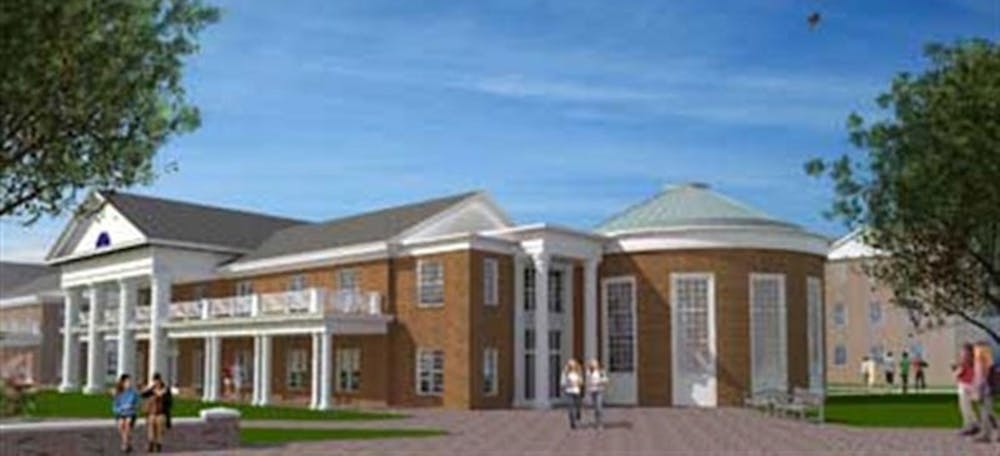Elon University prides itself on more than academic excellence. In addition to the lessons we learn inside the elegant brick buildings, students are encouraged to become socially conscious, global citizens.
Fostering religious tolerance is a crucial part of Elon’s pledge to promote diversity. Despite the services available to students of various faiths, the administration felt it could do more to support religious diversity and education for its students.
As of Fall 2012, the overwhelming majority of Elon students — 66 percent — identify as Christian. Roughly 30 percent do not identify as religious at all, 5 percent of students are Jewish, only .3 percent of students identify as Muslim and .1 percent as Buddhist.
The Truitt Center for Religious and Spiritual Life supports more than 15 student organizations, reflecting the religious diversity of our student body. This includes a Zen meditation group, a gospel choir, a group for Jewish students called Hillel, an interfaith group called Better Together, Catholic Campus Ministries, the Muslim Students Association and SANE (Student Atheists and Non-Religious at Elon).
Despite the numerous outlets for students to express their religious beliefs, Elon has committed itself to doing more. The school recently initiated a series of changes to substantiate its commitment to bringing greater religious diversity to the student body.
Perhaps the most notable change on campus will come with the completion of the mu
lti-faith center, the Numen Lumen Pavilion, in early spring. The center will consist of two prayer rooms and a large space for worship and reflection along with a kitchen and multi-purpose room for dinners, speakers and events.
The Numen Lumen Pavilion has been constructed so students of varying beliefs can learn, explore and share stories about their faiths and backgrounds. It is also intended to serve as a place for non-religious students to share their worldviews.
This January also marked the opening of the Sklut Hillel Center, offering a home to the existing Jewish group on Elon’s campus.
Elon is embracing a pluralistic view of society and is now, more than ever, placing an emphasis on expanding religious diversity on campus. There is a renewed purpose for bringing students together in spaces where they can practice and celebrate their own traditions while learning about others’.
In addition to Elon’s pledge to provide more faith-based outlets, the student body is also doing its part. Two students have proposed the idea of bringing Zeta Beta Tau (ZBT), the nation’s first Jewish fraternity, to campus.
ZBT representatives are currently meeting with interested Elon students who will serve as the founding brothers of the Elon chapter.
[quote]Elon has clearly committed itself to creating new opportunities for religious and non-religious students alike. The administration’s efforts to further religious diversity, however, will only come to fruition with active student participation. [/quote]
If we as students fail to take advantage of the multi-faith center, or if we choose not to embrace the new fraternity, we will be doing ourselves a great disservice. Ignoring these new religious forums would undermine Elon’s commitment to diversity. We must not only embrace the new additions, but also become active within them.
The roughly 30 percent of students who do not identify as religious who may think these changes do not concern them should reconsider. The center is not meant exclusively for people who identify as religious. It is meant to be a forum where students can express their diverse spirituality.
Elon has committed a significant amount of time and money to expose its students to religious diversity. It is preparing us for an increasingly global society in which we will be working, negotiating and collaborating with people who see the world differently from us. Religious understanding and receptiveness are attributes that can benefit students of any major.
Will adding a new space for discussion, a new fraternity and sprucing up already established organizations realistically foster tolerance among students? If students are willing to embrace these changes and act on them, then yes, it certainly can.
Elon students must make a point to visit the multi-faith center, support the idea of a Jewish fraternity and look into the various clubs that foster religious expression. Religious acceptance will only come to Elon if the students are instrumental in the process and committed to sustaining it.


